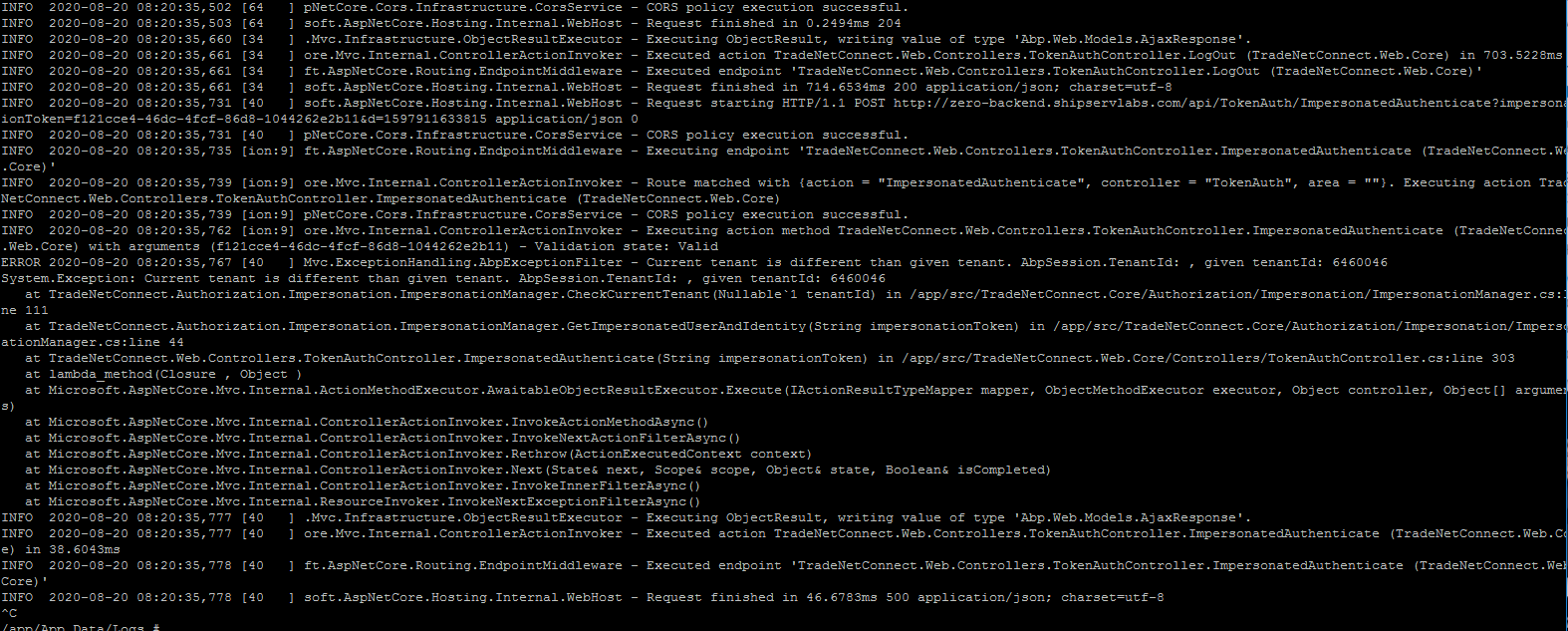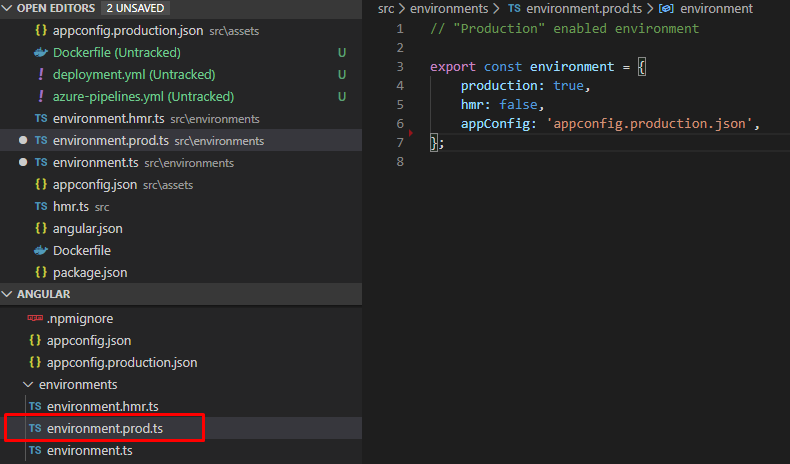Activities of "shipserv"
hi Zony,
It's not related to Redis upon further investigation. Because we tested the codes with Redis on different environment (not docker) and it worked fine.
Regards, Allan
hi Zony,
Yes, that's right. So that all sensitive data such as database connection string will be stored on environment variables rather than in codes of appsettings.json. We don't want these configs to be hardcoded.
Regards, Allan
Hi AspNetZero,
We have been migrating AspNetZero in docker using Kubernetes.
Currently, our settings like SQL Connection String (i.e.ConnectionStrings in appsettings.json) are hard-coded in these appsettings json files as seen below. What we are currently doing now is we split the appsettings based on the environment and we just set ASPNETCORE_ENVIRONMENT as env variable according to the environment where it's deployed and running.
We would like to move all these settings as environment variables in Kubernetes as we did with our other apps. Please let us know how to properly do it.
Regards, Allan
hi Zony, It worked. Thank you!
Hi AspNetZero,
We are migrating our AspNetZero UI (Angular) from Azure AppService to Docker setup.
May we ask what's the best way to configure Zero UI so that it will use appropriate settings per environment? Is correct to use the environment.<env>.ts for this purpose? (as seen on my screenshot) And execute the build, e.g. <span class="colour" style="color: rgb(106, 153, 85);">`ng build --env=prod` then `environment.prod.ts` will be used instead.</span> Do you have a better way? Ideally, we would like these settings (i.e.remoteServiceBaseUrl and appBaseUrl) to be set via environment variables. Is this possible? Please let us know.
Hi ASPNetZero support,
We are currently migrating Zero to a docker setup using Kubernetes so that we could be able to run multiple instances of the app. Single instance seems to be not good enough for the amount of load that we put in as it can't be horizontally scaled.
We tested most of the functionality and seems working fine on our DEV environment with this docker setup. But we encountered an issue with switching user to a different tenant. Zero is throwing an error "Impersonation token is invalid or expired!". We've investigated and assumed that the issue is caused by caching mechanism in Zero which is relative and contained within the app context instance. So, if we are running multiple instances in docker, each app instance will have their own unique cache (not shared) by default. So, the token might be available in one instance but not on the other instances.
The solution that we are planning to implement is to configure a single centralized caching system (e.g. Redis) so that all instances would be able to fetch the token whichever instance has stored it. But we would like to consult to you if this is correct and best way to go. Can you please guide us on this?
--The code snippet that is triggered to throw exception

Regards, Allan Backend Team Lead in ShipServ
Hi
We are looking to integrate our Salesforce system with the zero platform. We have in Salesforce for specific clients/tenants more than one commercial agreement in place. In Zero it seems that the current limitation is by having only ony one Edition/Subscription per client. Is there anyway to extend to have more subscriptions/editions per client in Zero ?
I am thinking of either already known functionality or if someone already have done the development learnings on same.
Any advice will be appreciated here :-)


